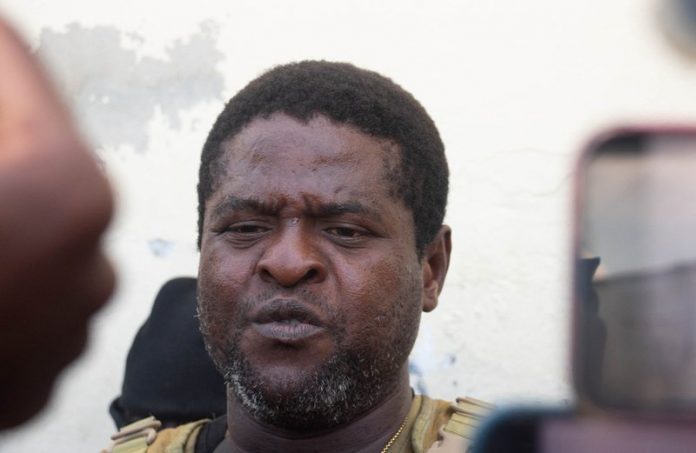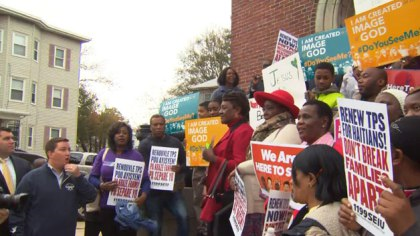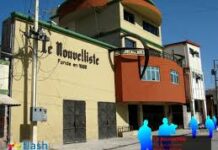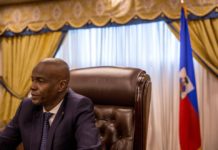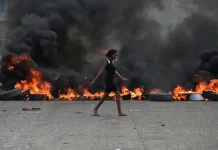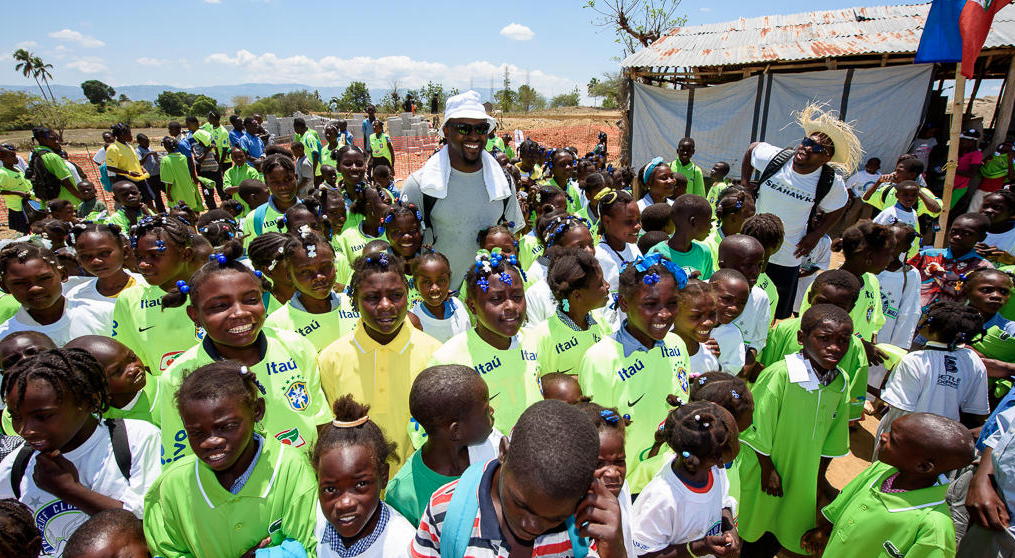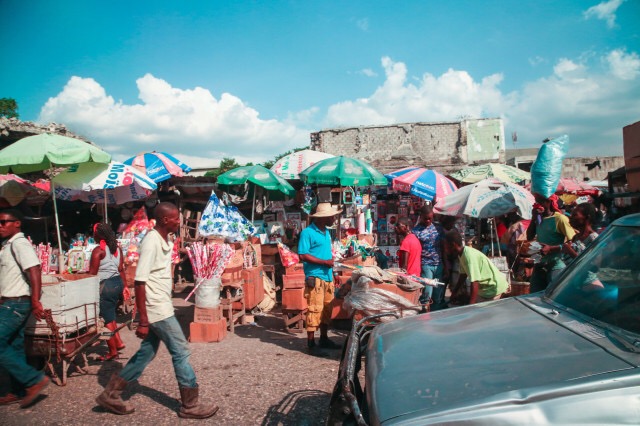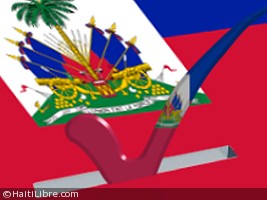Silence from Ariel Henry, who remains abroad, as Jimmy Chérizier, AKA ‘Barbecue’, warns country will ‘become a paradise or a hell’
The crime lord behind a six-day gang mutiny against Haiti’s prime minister, Ariel Henry, has claimed the Caribbean country could be plunged into civil war unless its temporarily exiled leader steps down.
Wearing an olive green tactical vest and flanked by armed foot soldiers in balaclavas, the gang boss Jimmy Chérizier told reporters his country was staring into the abyss. “Either Haiti becomes a paradise or a hell for all of us,” declared Chérizier, a police officer turned gang leader whose nom de guerre is Barbecue.
“If Ariel Henry doesn’t resign, if the international community continues to support him, we’ll be heading straight for a civil war that will lead to genocide,” added Chérizier.
Over the last six days gang fighters have released thousands of inmates from prisons stormed and laid siege to strategic locations in the capital, Port-au-Prince, including two airports, police stations and a port. Nearly all flights in and out of the country’s main international airport have been cancelled, with gangs launching a renewed assault on the compound on Tuesday.
“Who is in control? I think nobody is in control,” said Jean-Marc Biquet, the head of the Médecins Sans Frontières mission in Haiti. “And my personal fear is that the policemen are going to [give up fighting and say]: ‘It’s a lost battle.’ “Then what can happen? Well I guess, total chaos.”
US officials say there would no pressure on Henry to leave, but Washington is asking him to quickly come up with some form of plan for transition to a democratic government, adding to pressure coming from the Caribbean regional organisation, Caricom.
Chérizier’s courting of the cameras stands in stark contrast to the almost total silence from Henry and members of his debilitated administration.
“It is horrifying. It is heartbreaking what is going on. And what is worse is that you don’t hear a word from the government,” said Monique Clesca, a Port-au-Prince-based writer and political activist, blaming the unrest on the inaction and incompetence of Henry’s administration.
Haiti’s prime minister, a septuagenarian neurosurgeon who became acting president after the 2021 assassination of President Jovenel Moïse, has hardly been seen since the gang rebellion began while he was in Kenya attempting to speed up the deployment of a multinational security force.
US officials say that Henry’s visit helped resolve the constitutional issues that were blocking the Kenyan deployment, and that the police officers were on standby to fly in at short notice. It is unclear whether they would be flown to Haiti by US military transport, and also far from clear when the airport would be declare sufficiently secure for them to land.
On Tuesday, after days of speculation about his whereabouts, Henry reportedly attempted to return to Haiti, flying from the United States to the international airport in Port-au-Prince. However, according to a report in Puerto Rico’s largest newspaper, El Nuevo Día, Henry’s private jet was not given clearance to land. The plane was also prevented from landing in neighbouring Dominican Republic, which shares the Caribbean island of Hispaniola with Haiti. Instead, Henry was forced to retreat to Puerto Rico’s capital, San Juan. It is unclear what he plans to do next.
“We will let the Prime Minister speak to his travel plans,” a US state department spokesperson told El Nuevo Día when asked about Henry’s intentions. “The United States is not providing military assistance to help the Prime Minister return to Haiti,” they added.
On Wednesday, the UN security council will hold a private emergency meeting about Haiti’s intensifying security crisis which is aggravating an already dire humanitarian emergency that has exposed almost half of its 11.7 million citizens to acute hunger, according to the World Food Programme.
Asked about Chérizier’s call for Henry to step down, the state department spokesperson, Matthew Miller, told reporters: “[We] urge all actors to put the people of Haiti first, stop the violence – that would of course include these gangs that are responsible for the recent violence – and make the necessary concessions to allow for inclusive governance, free and fair elections, and the restoration of democracy.”




























![Phyllisia Ross – KONSA [Official Music Video]](https://haitiville.com/wp-content/uploads/2014/08/phyliisia.jpg)
